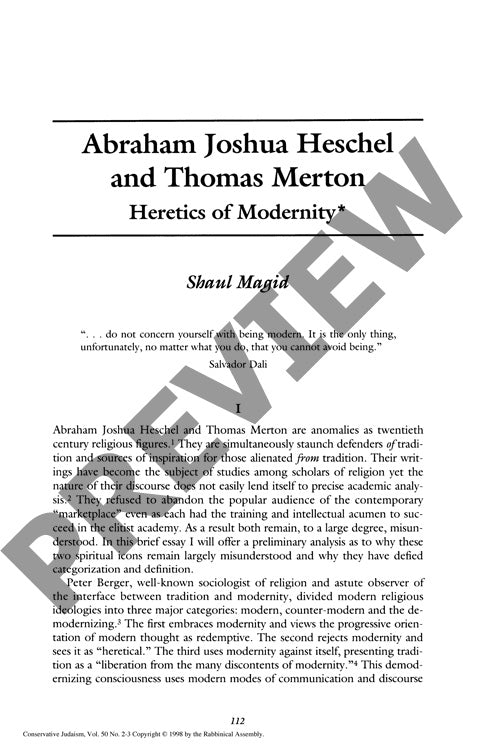Abraham Joshua Heschel and Thomas Merton
Couldn't load pickup availability
Abraham Joshua Heschel and Thomas Merton stand as compelling paradoxes in twentieth-century religious thought, defying Peter Berger's neat categorization of religious figures as modern, counter-modern, or de-modernizing. As "heretics of modernity," these influential thinkers championed traditional religious values while remaining deeply engaged with contemporary society, offering a unique bridge between ancient wisdom and modern life. Through comparative textual analysis of their writings on prayer, piety, and tradition, along with examination of their correspondence and biographical materials, distinct patterns emerge in how both men transformed their respective traditions—Hasidic Judaism and Christian monasticism—into modern responses to spiritual crisis. Rather than advocating retreat from civilization, they critiqued modernity from within, drawing on traditional forms: Heschel through Hasidic sources and Merton through Desert Fathers traditions. Their conceptualization of prayer as poetry and emphasis on piety as orientation rather than mere ritual observance exemplifies their creative synthesis of traditional and modern elements. Their enduring influence stems from this ability to bridge seemingly incompatible worldviews, demonstrating how modern individuals might engage meaningfully with ancient wisdom traditions while remaining fully participant in contemporary culture.

More Information
-
Physical Description
-
Publication Information
Published 1998
ISBN
-
Publication Credits
Shaul Magid

